Brain
-
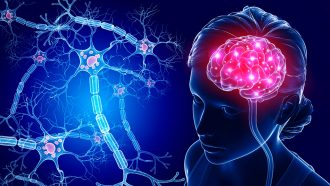 Brain
BrainExplainer: What is a neuron?
From the moment you are born, cells called neurons sense information, process it and then pass it on. Neurons allow you to do everything that you do.
-
 Brain
BrainSearch for ‘rewards’ is big driver in remodeling a teen’s brain
Communication ‘highways’ in the brain undergo a major overhaul as children morph into adults. Dopamine plays a big role in this remodeling project.
-
 Health & Medicine
Health & MedicineLet’s learn about exercise
Our bodies — from our muscles to our brains — love a good workout. Scientists are always learning new things about exercise.
-
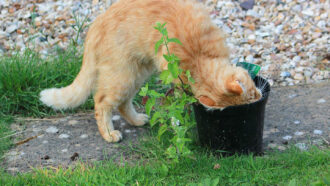 Plants
PlantsScientists may have finally found how catnip repels insects
The plant deters mosquitoes and fruit flies by triggering a chemical receptor that, in some animals, senses pain and itch.
-
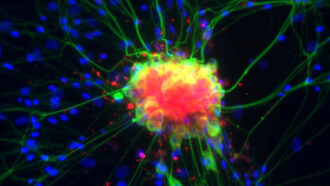 Brain
BrainScientists Say: Neuron
Neurons are the foundational cells in the nervous system. They pass along and process information using electrical signals.
-
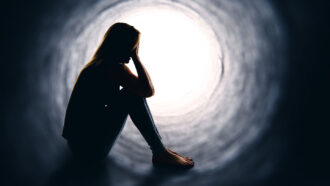 Health & Medicine
Health & MedicineTeen depression linked to how the brain processes rewards
Depression in teens alters their brains’ pathways in ways that may put those kids at risk of lifelong mental-health problems — unless they get help.
-
 Brain
BrainStudy is first to link brainwaves to certain forms of thought
Electrical activity in the brain reveals when we are focused or allowing our minds to wander freely.
-
 Brain
BrainActive bodies build stronger brains
Aerobic fitness and physical activity correlate with widespread brain health in adolescents, according to a new imaging study in England.
-
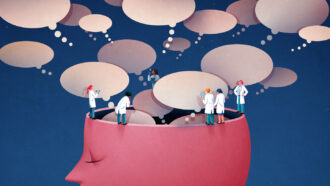 Science & Society
Science & SocietyNew technology can get inside your head. Are you ready?
New technologies aim to listen to — and maybe even change — your brain activity. But just because scientists can do this, should they?
-
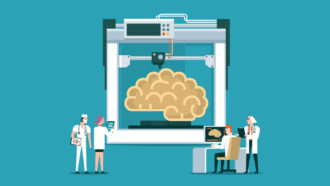 Science & Society
Science & SocietyPeople are concerned about tech tinkering with our minds
It’s not science fiction: Science can already eavesdrop on and influence our thoughts. Here’s what our readers think about it.
-
 Brain
BrainLoneliness makes our brains crave people
An area of the brain that lights up when hungry people see food also revs up when lonely people see social activities.
-
 Brain
BrainA taste map in the brain is a scattering of tiny flavor islands
Some senses are highly organized in the brain. Taste is not. And that points to just how important it is.